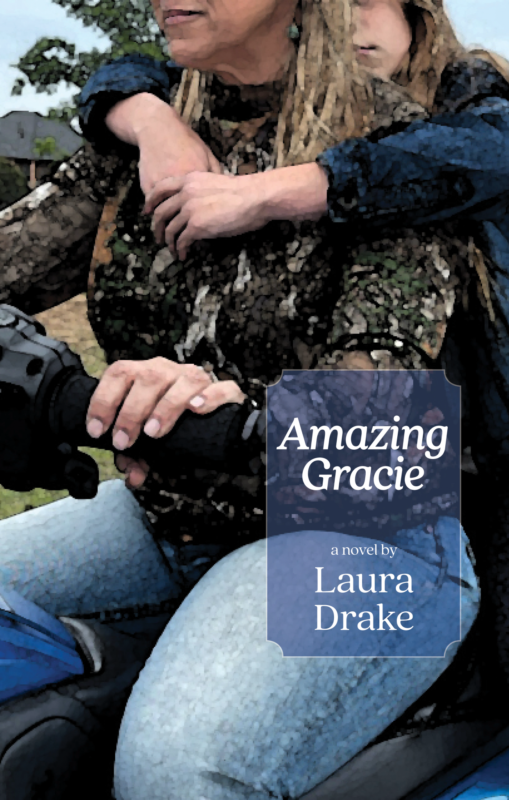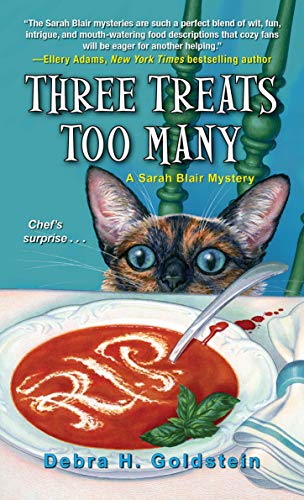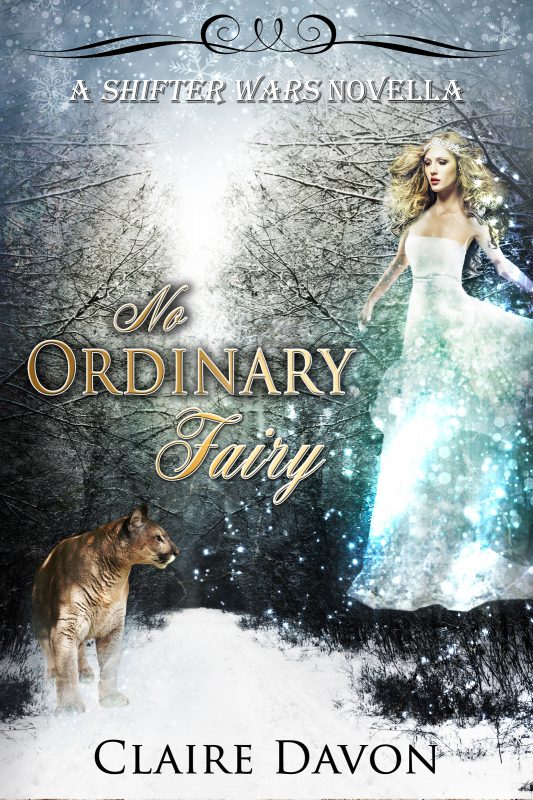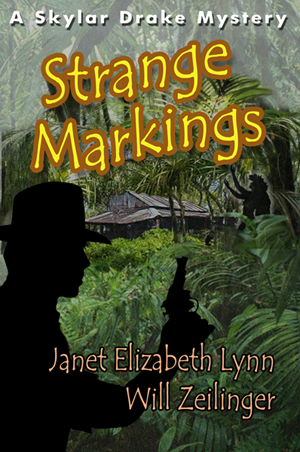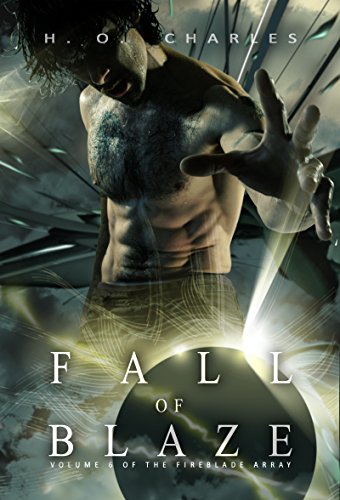Develop Strong Decision Making Skills as a Writer
August 12, 2020 by Denise M. Colby in category The Writing Journey by Denise Colby tagged as Denise M. Colby, writer skills, Writing Advice, writing processIt’s important to develop strong decision-making skills when writing a novel. As a writer we have many decisions to make when writing our stories. For our characters we have to figure out names, color of hair and eyes, and flaws and strengths. We also have to figure out where they live, where they work, who they will clash with and whom they will love. Do they have a large family or small? And what was their family life like?

Many important pieces that, like a puzzle, connect together to create a strong story. And portray characters our readers can relate to. So, it’s very important for us to get it ‘right’.
But what does right, mean?
And what can we do if we get it wrong?
See, in the past, my own fear of getting it wrong, prevented me from moving forward. And I had a hard time making decisions, especially not knowing if they would work or not. And not having answers made it difficult to write my story.
When I first started this novel-writing journey, I would save every word cut and paste it in another file. I was terrified to erase an idea or phrase. What if I couldn’t come up with something better? Or I forgot the idea I originally came up with? I found myself unable to know how to make the right decisions.
And then I couldn’t make up my mind if I wanted my heroine to be sassy or shy. Or what she even should look like.
Part of this was because I had never done this before. Another part of it was my own lack of decision-making skills. I needed to figure out how to become a strong decision maker and fast.
Who knew that to become a good writer, I needed strong decision making skills?
I’ve since learned I just have to make decisions, but that they can change if I need them to. It’s better to have a direction, than no direction at all.
Also taking workshops from other writers has helped me learn a variety of ways to approach the writing process. Yes, some of the decisions are still pulled out of thin air. You have to start somewhere! But I’ve since learned how to think through these points when writing.
I’ve also learned that I don’t have to save the words. Now I can trust myself to come up with new content that still fits my story. I’ve also learned that sometimes it’s better to start over with a new way of writing a scene. This decision has helped me try different approaches rather than adding patches and bandaids. And the practice has allowed me to apply new techniques I’ve learned in recent classes.
Now I can say with pride that I can rewrite my opening a 7th time and still survive!
A word that comes to mind when I think about this – everything we do in writing our stories is redeemable.
Redeemable—able to be recovered or saved from faults or bad aspects.
Did you know all the other words linked to redeemable in the thesaurus?
Rectifiable, improvable, restorable, fixable, reparable
Do you know what this means? Our writing is not permanent and frozen with the first things we write. It can evolve and grow and improve.
That’s huge encouragement to me.
So I can decide away, and then redeem what works. I don’t have to make ALL the decisions final each step of the way. There’s room for change and room for me to make strong decisions with each layer of edits I do.
This change in mindset has allowed me to change scenes completely and try them in a new way. Because, if I didn’t like it, I can change it back, or try again. It might mean more work, but that’s okay.
This is because the hard work isn’t what scares me, it’s the fear of not getting it right. There are so many different ways to put a phrase together!
I wrote a post Facing your Fear and I think I need to reread it every once in a while. I’ve come a long way in my writing, but my fears still can get in the way of my goals. And I’m not about to let my fears stop me now.
That’s why I wrote my blog post on Listing out Your Accomplishments. When I track the things I have accomplished, it helps me face my fear. Which in turn helps me make better decisions going forward. It’s like each decision I make, encourages me to make more.
Making decisions makes me a stronger decision maker
I’ve come a long way from saving every word I cut and not knowing what I want for my characters. Now I sometimes try out a scene a completely different way just to see it from a distinct angle. And then I can redeem the words that work the best from either version.
Do you have areas that are difficult for you to decide on?
0 0 Read moreThe Seven Challenges I Love About Writing Short Stories by Jerome W. McFadden
December 13, 2019 by Bethlehem Writers Group in category From a Cabin in the Woods by Members of Bethlehem Writers Group tagged as Jerome W. McFadden, Short Stories, writing, Writing Advice

Multi-award winning Jerome W. McFadden’s has had forty short stories published over the past ten years in a wide magazines, e-zines, and a dozen anthologies. He efforts have won him several national awards and writing contests, receiving a National Bullet Award for the Best Crime fiction on appear on the web in June 2011. His short stories have been read on stage by the Liar’s League in Hong Kong and the Liar’s League in London.
After receiving his B.A. from the University of Missouri, he spent two years as a Peace Corps volunteer in Casablanca, Morocco. Following his MBA from the Thunderbird Graduate School of Global Management (Arizona State University). He continued his peripatetic ways with corporate assignments in Houston, Istanbul, Paris, San Francisco, and Singapore, spending his spare time writing free-lance articles for American and newspapers and magazines. He morphed from journalism to short fiction in 2009. He now resides in Bethlehem, Pa. and is an active member of the Bethlehem Writers Group. His collection of 26 short stories, Off The Rails, A Collection of Weird, Wicked, & Wacky Stories, appeared in November, 2019.
The Seven Challenges that I Love About Writing Short Stories
1) You need to get into the story from the very start:
Every word in a short story matters. Time and space are limited. You cannot afford to waste a page or two describing the weather, building the setting, or giving the genealogy of your hero/heroine. You need to get to the guts of the action quickly, pulling the reader in with the first paragraph. By the end of the first page the reader should be aware of the famous 5 W’s of journalism: Who, where, when, what, with why possibly coming later.
2) You need to quickly define the core of the story:
Short stories follow only one trajectory — one arc — concerning one character (or a small group of characters) traveling through one primary crisis or concern. The crisis or concern is in fact one shattering moment in that person’s (or group’s) life that he/she must work through, successfully or unsuccessfully. Note: That shattering moment does not need to be violent. It could be emotional, psychological, mental, or spiritual, or other. But it needs to be challenging. *
3) You must develop your characters rapidly.
Characters must be construct with complexity, credibility, and emotion—in as little as a sentence or two. The writer must show character development while actively moving through the story’s narrative. You do not have time or space for the big old info dump. Instead, the writer needs to use clever dialogue, interactions, short flashbacks, and sharp imagery to develop the story’s characters.
4) You are allowed only so many characters in the story:
You are limited to a small cast of characters. A full cast might consist of only one or two characters. Any character you decide to introduce must bring something crucial to the story – or be eliminated. Bringing in a characters for “cuteness” or for “color” or just because you like the quirky character in your head, is wasting precious words and precious space in your story. A good rule: Any character that does not bring in two vital elements into the story needs to be eliminated forthwith.
5) Short stories require a strong pace and balance:
Recognize the descriptions and dialogues that slowing the story down, as well those that are those that are moving the story along. You must identify the best place to start, where to put the opening scene that hooks the reader, then maintain that hook to continue to pull the reader through the rest of the story.
6) Short stories teach you to trim the fat:
Short stories leave no time for easing into things (long descriptions, banal conversations, interesting but boring backstory, wild personal tangents). Short stories are just that—Short —but they must always pack a punch. This may be the ultimate skill to be learned from short story writing: Trim the fat. My favorite writing “rule” comes from the legendary writer Elmore Lenonard, ‘Leave out the parts that the readers skip.”
7) A great short story must create an emotional impact:
The stronger the better. And a great twist at the ending helps make the story memorable
An added note: The tools and skill you pick up from writing short stories are assets that can and probably should be used in your novel writing.
*This “shattering moment” is described lovingly and in full detail in Chapter 3 – The Big Key in James Scott Bell’s wonderful book How to Write Short Stories And Use Them to Further Your Writing Career.
A Selection of Books by Jerome W. McFadden
Does the Extra Squeeze Team Think an Author Can Be Published both Traditionally and Indie?
October 31, 2017 by The Extra Squeeze in category The Extra Squeeze by The Extra Squeeze Team tagged as Hybrid Publishing, indie publishing, traditional publishing, Writing Advice
Does the Extra Squeeze Team Think an Author Can Be Published both Traditionally and Indie?
I’m a traditionally published author and I have several ideas that I would like to publish independently. Will my publisher be upset? Can an author really be published both traditionally and independently?
[tweetshare tweet=”Can an author really be published both traditionally and independently?” username=”A_SliceofOrange”]

Rebecca Forster
USA Today Bestselling author of 35 books, including the Witness series and the new Finn O’Brien series.
Like so many other authors, I walked a fine line for years as I tried to create a viable writing career while not upsetting the publishing apple cart. I knew there were fifty worthy authors out there waiting to take my place on the list if I made waves with my agent or publisher. The majority of writers in the last many years were playing real-life Chutes and Ladders and more than likely we were all going to end up at the bottom of a chute.
I made a decision not to continue pursing a traditional career when I submitted a book that I believed would take my work to a new level. It was rejected by any number of publishers. They didn’t want to take a chance, and I couldn’t blame them. If they published a book that was not what my reader’s had come to expect, they might not make back the investment they had made in me. Coming from a business background, I understood that editing, cover design, distribution, sales, and returns could all be translated to a line item on the publisher’s balance sheet.
Realizing that distribution channels were tightening up, wanting to explore how far I could take my craft, I published that book on my own. Happily, I found the editors were wrong. Readers bought it, liked it and understood it. I went on to republish and expand a series that the publisher believed had run its course. The first book has had over 4 million downloads, and the series has over seven thousand reviews.
Today, the chutes remain the same but there is more than one ladder to climb, and an author’s fate is in her (or his) hands.
So here are my answers to your questions, and a little advice. First my answers.
Yes, it is possible to publish both traditionally and independently. I’ve met many authors who have had great success as hybrids.
Your editor will be upset only if you don’t pursue hybrid publishing in a professional manner. If the editor has turned down your ideas, then you are free to pursue other avenues. If you are contractually bound to first right of refusal with your publisher, then show them your new ideas and make your decision after you hear what the editor has to say.
[tweetshare tweet=”Traditional or Indie: Advice from @Rebecca_Forster” username=”A_SliceofOrange”]
And now for the advice:
Treat both your traditional and independent publishing with the same professionalism. Your readers won’t change; they will still expect good writing, an excellent story, and a well-produced book.
When marketing, use your traditional success to bolster your independent publishing, use your independent success to bolster your traditional work. This is a win/win for the hybrid author.
So go for it. Execute those ideas that may not be in the mainstream. Be bold; be brave. Publishing is exciting, scary, full of choices and marvelous no matter which road you take.

Jenny Jensen
Developmental editor who has worked for twenty plus years with new and established authors of both fiction and non-fiction, traditional and indie.
Not being an expert on the publishing industry I’m certain I don’t have an expert response, but I do know there are a lot of hybrid authors. A quick Google search reveals a ton of articles on the pros and cons of hybrid publishing — mostly pros. Traditionally published writers who go indie, and vice versa, often find having a stake in both worlds to be a lucrative model. If there isn’t an existing contract with a publisher, what’s there to be mad about? Indie is a fabulous opportunity.
[tweetshare tweet=”Editor Jenny Jensen Traditional vs Indie: The Indie option makes the issue of quality even more critical.” username=”A_SliceofOrange”]
What I am certain of is the Indie option makes the issue of quality even more critical than in pre-digital days. All work that leaves your hands, all work with your name on it must be the best it can be. For a traditional publisher you have to offer the best work you possibly can if you want to even be considered for publication. But traditional publishers have the back up of a slew of editors who expect to work with a compelling manuscript to make it the best they feel it can be. Your work simply has to be so good it merits a publisher’s investment. That bar is set pretty high. A good freelance editor will improve your odds of clearing it.
An Indie writer has only the back up she invests in her work. If you release a poorly edited book, regardless of how exciting the premise is, or how charming your characters or how riveting your action, you lose readers and the credibility of your name — you lose your opportunity. An Indie author must themself invest all the necessary effort and services offered by a publishing house. The return on that investment is success, creative control and much juicier royalties.
I edit each of my clients as if their work were going to the Nobel committee. The goal is to make a perfectly crafted story that can measure up to both a Random House editor and all those discerning readers downloading to their devices. That should be every writer’s goal — traditional or Indie. The services of an editor are a part of achieving that.

Ever wonder what industry professionals think about the issues that can really impact our careers? Each month The Extra Squeeze features a fresh topic related to books and publishing.
Amazon mover and shaker Rebecca Forster and her handpicked team of book professionals offer frank responses from the POV of each of their specialties — Writing, Editing, PR/Biz Development, and Cover Design.
Robin Blakely
PR/Business Development coach for writers and artists; CEO, Creative Center of America; member, Forbes Coaches Council.
Frankly, who cares if your publisher is upset?
Of course, as a PR professional, I love to make sure there is harmony amongst the people, that protocol is maintained, and that diplomacy is the hallmark of all relationships.
But here is the reality: it is tough being a professional writer. You have a right to make a living as a writer in a world that often does not value your talent appropriately.
[tweetshare tweet=”@RobinBlakely says: Please think of your writing career as a business.” username=”A_SliceofOrange”]
If your publisher wants to throttle your ability to earn an income, I would be very concerned about working with that publisher. Anytime there is oppression, fear, or a sense that you must go out of your way to manage your publisher’s emotional state, walk away. Being told how and when and what to do—and not do–with your career is suffocating. You can do better. It is possible to publish traditionally and independently simultaneously and create a promotional strategy that allows both profit streams to flourish.
Please think of your career as a business. You are the brand. The publisher is a business partner. If you are kept in the dark or restricted from succeeding, what kind of partnership does that make? Not one that is good enough for you.
If only I were published traditionally, I would have a better answer to this!
I do know of another fantasy author who has done both. He started off as self-published and then signed over some of his books to a big-name house. In that situation, both parties were winners. He gained more publicity, and they knew they were supporting a writer who was already popular (and could therefore make money from him).
If it’s the other way around, I’m not so sure. They may be spending ££££ on your PR, so might not appreciate it if (as a ludicrous example) they had built and sold an image of you as a sweet, softy romance author, and then you went and published a treatise on the pros of Nazism. I guess that’s the question to ask: “Will my publishing independently cause a loss on their investment in me?”
[tweetshare tweet=”H.O. Charles: Will your publishing independently cause a loss on your publishers investment?” ” username=”A_SliceofOrange”]
Affiliate Links
A Slice of Orange is an affiliate with some of the booksellers listed on this website, including Barnes & Nobel, Books A Million, iBooks, Kobo, and Smashwords. This means A Slice of Orange may earn a small advertising fee from sales made through the links used on this website. There are reminders of these affiliate links on the pages for individual books.
Search A Slice of Orange
Find a Column
Archives
Featured Books
AMAZING GRACIE
CJ has returned from war. But she has not left the war behind.
More info →THREE TREATS TOO MANY
When a romantic rival opens a competing restaurant in small-town Wheaton, Alabama, Sarah Blair discovers murder is the specialty of the house . . .
More info →STRANGE MARKINGS
The Pacific breezes blow many things in from the ocean, this time its power, greed, and murder.
More info →FALL OF BLAZE
The Darkworld turns ever more slowly, and its skies grow bleaker by the hour.
More info →Newsletter
Contributing Authors
Search A Slice of Orange
Find a Column
Archives
Authors in the Bookstore
- A. E. Decker
- A. J. Scudiere
- A.J. Sidransky
- Abby Collette
- Alanna Lucus
- Albert Marrin
- Alice Duncan
- Alina K. Field
- Alison Green Myers
- Andi Lawrencovna
- Andrew C Raiford
- Angela Pryce
- Aviva Vaughn
- Barbara Ankrum
- Bethlehem Writers Group, LLC
- Carol L. Wright
- Celeste Barclay
- Christina Alexandra
- Christopher D. Ochs
- Claire Davon
- Claire Naden
- Courtnee Turner Hoyle
- Courtney Annicchiarico
- D. Lieber
- Daniel V. Meier Jr.
- Debra Dixon
- Debra H. Goldstein
- Debra Holland
- Dee Ann Palmer
- Denise M. Colby
- Diane Benefiel
- Diane Sismour
- Dianna Sinovic
- DT Krippene
- E.B. Dawson
- Emilie Dallaire
- Emily Brightwell
- Emily PW Murphy
- Fae Rowen
- Faith L. Justice
- Frances Amati
- Geralyn Corcillo
- Glynnis Campbell
- Greg Jolley
- H. O. Charles
- Jaclyn Roché
- Jacqueline Diamond
- Janet Lynn and Will Zeilinger
- Jaya Mehta
- Jeannine Atkins
- Jeff Baird
- Jenna Barwin
- Jenne Kern
- Jennifer D. Bokal
- Jennifer Lyon
- Jerome W. McFadden
- Jill Piscitello
- Jina Bacarr
- Jo A. Hiestand
- Jodi Bogert
- Jolina Petersheim
- Jonathan Maberry
- Joy Allyson
- Judy Duarte
- Justin Murphy
- Justine Davis
- Kat Martin
- Kidd Wadsworth
- Kitty Bucholtz
- Kristy Tate
- Larry Deibert
- Larry Hamilton
- Laura Drake
- Laurie Stevens
- Leslie Knowles
- Li-Ying Lundquist
- Linda Carroll-Bradd
- Linda Lappin
- Linda McLaughlin
- Linda O. Johnston
- Lisa Preston
- Lolo Paige
- Loran Holt
- Lynette M. Burrows
- Lyssa Kay Adams
- Madeline Ash
- Margarita Engle
- Marguerite Quantaine
- Marianne H. Donley
- Mary Castillo
- Maureen Klovers
- Megan Haskell
- Melanie Waterbury
- Melisa Rivero
- Melissa Chambers
- Melodie Winawer
- Meriam Wilhelm
- Mikel J. Wilson
- Mindy Neff
- Monica McCabe
- Nancy Brashear
- Neetu Malik
- Nikki Prince
- Once Upon Anthologies
- Paula Gail Benson
- Penny Reid
- Peter J Barbour
- Priscilla Oliveras
- R. H. Kohno
- Rachel Hailey
- Ralph Hieb
- Ramcy Diek
- Ransom Stephens
- Rebecca Forster
- Renae Wrich
- Roxy Matthews
- Ryder Hunte Clancy
- Sally Paradysz
- Sheila Colón-Bagley
- Simone de Muñoz
- Sophie Barnes
- Susan Kaye Quinn
- Susan Lynn Meyer
- Susan Squires
- T. D. Fox
- Tara C. Allred
- Tara Lain
- Tari Lynn Jewett
- Terri Osburn
- Tracy Reed
- Vera Jane Cook
- Vicki Crum
- Writing Something Romantic
Affiliate Links
A Slice of Orange is an affiliate with some of the booksellers listed on this website, including Barnes & Nobel, Books A Million, iBooks, Kobo, and Smashwords. This means A Slice of Orange may earn a small advertising fee from sales made through the links used on this website. There are reminders of these affiliate links on the pages for individual books.


















